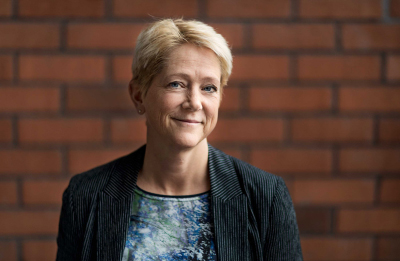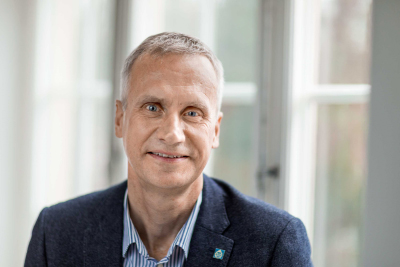“An opportunity to greater and broader collegial engagement”
– Faculty Collegium to be replaced by five school collegiums and a collegial forum
An independent school collegium at each school, supplemented with a collegial forum in which the entire staff of KTH will be gathered. The purpose of this new organization that replaces the Faculty Collegium is to increase the faculty engagement and thus the collegial influence.

Elections to the new school collegiums are currently underway. The School of Engineering Sciences has already held its election and the other schools are well on the way. The School of Electrical Engineering and Computer Science already has a forum that to a certain extent functions as a model for the new school collegiums.
“Our aim is that schools should have carried out their elections by the end of March,” Vice Dean of Faculty Sofia Ritzén says. She has taken the initiative to the new organization for collegial influence at KTH together with Dean of Faculty Anders Forsgren and the .
Seeking to involve and engage the entire faculty
With regard to collegial influence at KTH, the Faculty Council works towards two overall goals. The first one is to anchor its work with staff. The second one is to promote exchange across subject boundaries. Anders Forsgren believes that moving the collegial discussion down to school level, closer to the staff, could contribute to achieving these goals and that it will increase engagement at the faculty.

“The Faculty Council has a role as an advisory body to the President on strategic issues and it is not sufficient that only the Faculty Council represents the faculty. We must anchor strategic issues and deal with them in a forum closer to the staff. And staff members must be able to address issues to KTH´s management,” he says.
“We also want to be able to take issues from management down to the school collegiums and thus to the staff,” Sofia explains.
The purpose of this reorganization is to involve the entire faculty in the collegial discussion. At the Faculty Collegium, representation was limited to professors, associate professors and assistant professors. The new organisation will extend nomination and voting rights to lecturers and researchers whose main employer is KTH.
“Researchers are an important group that we need to include in this work.” Sofia says.
The collegiums are open to everyone at the school
The school collegiums will consist of between 12 and 18 members, depending on how the school in question is organized. As an example, the School of Engineering Sciences in Chemistry, Biotechnology and Health (CBH) has nine departments and the School of Engineering Sciences (SCI) has four departments. The idea is that each department at the Schools of Architecture and the Built Environment (ABE), Engineering Sciences in Chemistry, Biotechnology and Health (CBH) and Industrial Engineering & Management (ITM) will have two representatives, while those at the School of Electrical Engineering and Computer Science (EECS) and the School of Engineering Sciences (SCI) will have four representatives.
Another ambition is to, as far as possible, achieve an even gender distribution.
“We have attempted to achieve the best possible representation from departments,” Anders says.
Each school collegium will have a chairperson and a deputy chairperson and will meet twice each term. The Dean and Vice Dean of Faculty will meet with the chairperson prior to each meeting.
“On these occasions we will be able to hear what’s happening at the school. We will also be able to address questions to school collegiums and take their questions with us. We also intend to invite representatives of the University Board,” Anders says.
One major difference between the new arrangement and the Faculty Collegium is that the school collegiums will be open to everyone with voting rights at the school. The elected members have a special responsibility. However, even those who are not elected members will be equally welcome to attend meetings and become engaged.
A collegial forum for the entire faculty
As a supplement to the school collegiums a KTH collegial forum will be established, with two meetings planned for each term. This forum will be standalone in relation to the school collegiums, although the agenda may be influenced by them. At the KTH collegial forum, faculty staff will be able to discuss vital questions concerning research, education and collaboration, both nationally and internationally.
“This may be questions such as ‘What is academic freedom?’ or ‘What constitutes ethical research’? or other matters of importance to researchers that need to be discussed with others in order for any action to be taken,” Sofia says.
A prerequisite for collegial influence is that faculty staff is engaged, she notes.
“All we can do is create a forum for this. We can create the mechanism but we can’t do anything unless teachers and researchers are engaged,” Sofia says.
Håkan Soold

